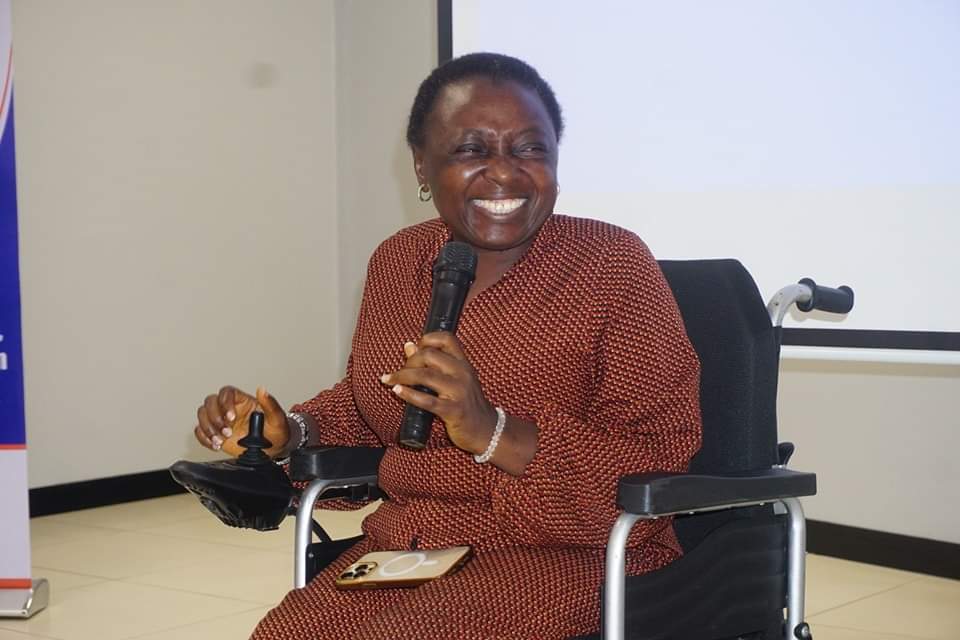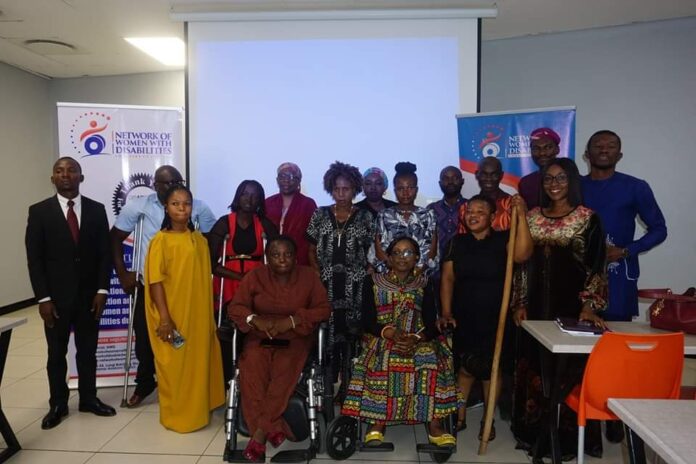Abuja, Nigeria – In a powerful call to action, stakeholders from the health, gender, and environment sectors gathered in Abuja to advocate for the integration of women and girls with disabilities into climate change policies, programs, and disaster management initiatives. The one-day Stakeholders Meeting, organized by the Network of Women with Disabilities (NWD) and supported by the Disability Rights Fund, emphasized the critical need to include this often-overlooked group in the climate discourse.
Mrs. Lois Auta, Project Lead and Executive Director of NWD, opened the meeting by shedding light on the disproportionate impact of climate change on women and girls with disabilities. She pointed out that these individuals face significant challenges in areas such as biodiversity, food insecurity, health, economy, and water sanitation and hygiene.
“Our legal frameworks should address the issues facing women with disabilities and the impact of climate change,” Mrs. Auta asserted. “We need to include them in planning and empower, engage, and employ women with disabilities in all our job and training opportunities.”
A critical point raised during the meeting was the lack of representation of women with disabilities at major international forums like the Conference of Parties (COP28). Mrs. Auta called for a five percent reservation for women with disabilities in the upcoming COP29, highlighting the need for their voices and perspectives in global climate discussions.
Mr. Akintude Akinmolayen, Executive Director of Climate Actors Innovations and Sustainability, echoed these sentiments, emphasizing the urgent need to prioritize the needs of women with disabilities in disaster scenarios and climate change impacts. “Climate change affects everyone, but PWDs (Persons with Disabilities) are especially vulnerable, particularly in accessing facilities during climate disasters, which exacerbates their challenges,” he said. Mr. Akinmolayen urged the government to include PWDs in policies and early warning systems to better prepare and protect them.
Reaffirming the government’s commitment, Mr. James Lalu, Executive Secretary of the National Commission for Persons with Disabilities (NCPWDs), stressed the importance of promoting inclusion and upholding the rights of PWDs. Represented by Ms. Akinbola Olanike, Head of the Women and Gender Unit, he emphasized the necessity of collaboration to ensure inclusion in climate change policies and access to aid during climate impacts.
The meeting also featured significant contributions from Hajiya Fatima Kasim of the National Emergency Management Agency (NEMA) and Comfort Omokore from the National Environmental Standards and Regulations Enforcement Agency (NESREA). Both confirmed their agencies’ dedication to prioritizing PWDs and supporting inclusive policies and programs. Their commitment underlined the broad support for making climate policies more inclusive and responsive to the needs of all citizens.
A key highlight of the event was a panel discussion on integrating disability-inclusive approaches into climate change planning and disaster risk reduction. Experts and advocates explored actionable strategies to ensure that the needs of women and girls with disabilities are not sidelined in climate action plans. This discussion underscored the importance of intersectionality in addressing climate impacts and the necessity of tailored solutions that consider the unique vulnerabilities of different groups.

The advocacy efforts spotlighted during the meeting underscore the urgent need for inclusive climate action. By ensuring that women and girls with disabilities are actively included in the fight against climate change, stakeholders aim to create more resilient and equitable communities. The call to action made in Abuja is a reminder that sustainable development cannot be achieved without considering the needs of all citizens, particularly those who are most vulnerable.
This meeting represents a significant step towards recognizing and addressing the unique challenges faced by women and girls with disabilities in the context of climate change. The collaboration between various sectors and the strong support from governmental and non-governmental agencies mark a hopeful path forward. By integrating disability-inclusive approaches into climate policies, Nigeria can lead by example in promoting equity and resilience in the face of global climate challenges.


